External Affairs Minister says ‘Operation Kaveri’ was the most challenging rescue operation
Mysore/Mysuru: Union Minister of External Affairs, S. Jaishankar spoke extensively about the challenges faced during ‘Operation Kaveri,’ which was launched to evacuate Indians from civil war-hit Sudan and said that the task was most complicated for various reasons.
Speaking at an interactive session on ‘Foreign Policies of Modi Government’ organised by Thinkers Forum Mysuru at Karnataka State Open University (KSOU) Convocation Hall this morning, Jaishankar listed out certain inner details of the operation.
“Operation Kaveri started on Apr. 15 and involved the evacuation of 4,000 Indians, including 11 to 12 percent of them from Karnataka. To ensure their safety, 17 Indian Air Force flights were deployed, and several sorties of ships were done,” he said. He also described the extent of risks taken to ensure the safety of the countrymen.
A high-risk operation
The Minister also highlighted that ‘Operation Kaveri’ was unique in its complexity compared to previous operations due to various reasons. When the civil war broke out in Sudan, several foreign embassies evacuated their offices in the country, but India decided to stay and ensure the safety of its citizens. The Indian Ambassador and team worked tirelessly to address the crisis, while the Indian Air Force took the risk of landing aircraft on an airstrip where a previous flight was shot at, he revealed.
“Moreover, the operation required the hiring of 60 to 70 buses and the purchase of petrol in the black market, making it the most complicated evacuation operation ever undertaken by India in recent times,” he said.
However, India also received help from several other countries, including Saudi Arabia, England, and the United Arab Emirates, which was made possible by India’s strong relationships with these nations, said Jaishankar.
He highlighted the importance of being prepared to face challenges before a catastrophe hits. He spoke about India’s efforts during the COVID-19 pandemic, where the External Affairs Ministry worked in three shifts of eight hours each to bring back 70 lakh Indians stranded in different parts of the world. “At that time, you all worked from home,” he said, lightening the atmosphere.
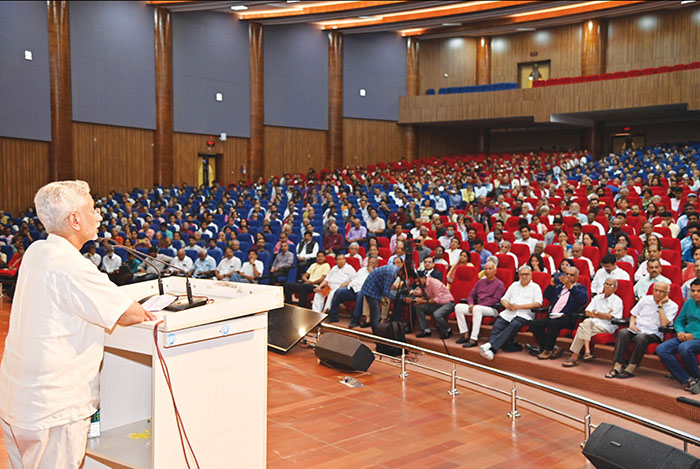
‘Made in India’ vaccine
India also extended help to other countries by supplying the ‘Made in India’ vaccine against the pandemic, which made a significant difference and was appreciated by many countries, including those in the Caribbean region, according to Jaishankar.
Mincing no words, Jaishankar said: “The world appreciates India. We are capable on many fronts, but what is needed is leadership and motivation. We need capable leaders to take the country ahead. To mention of the country’s recent capabilities, Covaxin the indigenously made vaccine against COVID is here, followed by the 5G network and the digital revolution, which all have made India a different country.”
During the session, Jaishankar also expressed his appreciation for Karnataka as one of the most globally connected States in India.
Managing Editor of Star of Mysore and Mysuru Mithra Vikram Muthanna, who is known for his column ‘In Black & White’, moderated the interactive session. He thanked Jaishankar for deriving the name for ‘Operation Kaveri’, from the river by the same name that originates in the State and flows a few km from here.
Maadhurya Ramaswamy, a member of Thinkers Forum Mysuru and an artist, presented Jaishankar with a painting of Lord Ganapathi.
Other notable attendees included Padma Bhushan awardee Dr. S.L. Bhyrappa, Founder Editor of Star of Mysore, Mysuru Mithra K.B. Ganapathy and educationist R. Vasudev Bhat.
Convenor of Thinkers Forum Darshan Raj and Dr. Lakshmi Narasimhan were present.



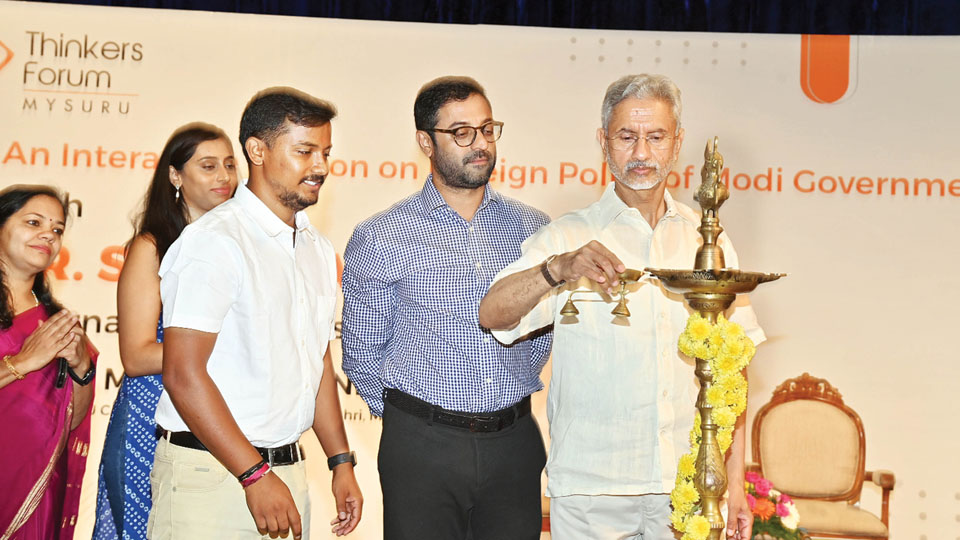
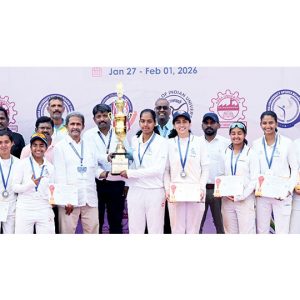
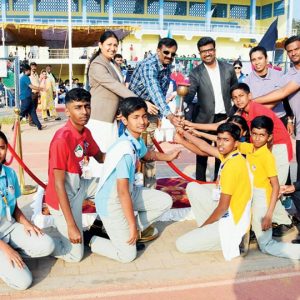
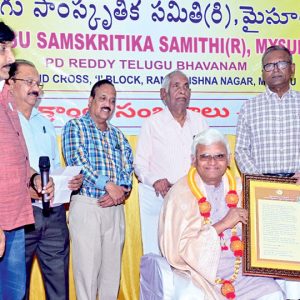

Recent Comments